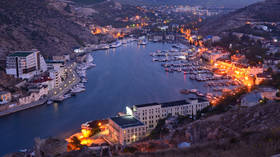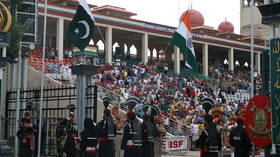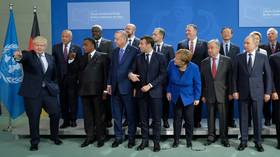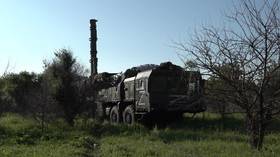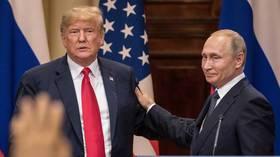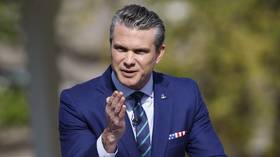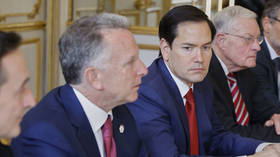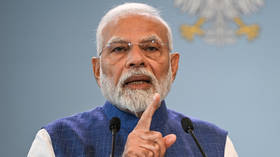‘Human rights’ attacks on DPRK will not bring peace
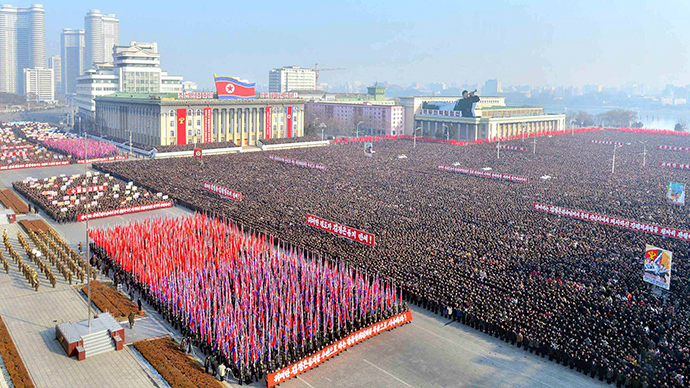
The latest act of hostility and aggression against the Democratic People’s Republic of Korea came in the form of the Human Rights Report issued by the United Nations.
The recent report makes very extreme accusations against the country, and its words are being repeated in Western media as undisputed fact.
The research the report is based on was hardly scientific. In Tokyo, Seoul, Washington, DC, and London, the United Nations held public hearings. A variety of anti-regime forces attended these meetings and spoke. In addition, there were 240 confidential interviews.
In plain words, hate rallies were staged in the capital cities of the four greatest enemies of the DPRK. At these events, exiles from the DPRK stood up and spoke against the country they fled. Their harsh accusations were then recorded as if they were completely credible and accurate. This would be the equivalent of researching human rights in Cuba, by only gathering information on the streets of Miami.
From 1948 to today
There are many people who have fled the DPRK for some reason or other. Many Japanese collaborators fled after the DPRK was founded in 1948. While South Korea’s government included many Japanese collaborators, the DPRK held them accountable. Many who had collaborated with the enslaving, raping, and brutal colonization their own countryfolk were forced to flee, or else be tried and executed. In addition, many landlords, shop keepers and other middle class elements left the DPRK after their property was nationalized in the process of constructing the socialist economy.
‘North Korea: A Country Study’, published by the US Library of Congress, documents how the economic transformation greatly benefited the overwhelming majority of the population. Between 1948 and 1990, the life expectancy of the average person in the DPRK increased by nearly 30 years. In 1955, the DPRK had only 285 hospitals in the entire country. By 1986, it had 2,401. The country study from the US Library of Congress also tells of how illiteracy was wiped out, and universal compulsory education became available to all children.
It makes sense that for the Japanese collaborators, wealthy landowners, and privileged sectors, the transformation of northern Korea from an impoverished colonized feudal society to a socialist one is remembered as cruel and tragic. But for the majority of residents for northern Korea, the transformation that began in 1948 and still continues to this day has rendered decent results in terms of basic societal health.

Until the 1980s, the DPRK was economically prosperous in comparison to other Asian countries, and the living standard continued to rise. The food shortages and other extreme economic hardships began in the 1990s, when the collapse of the Soviet Union forced the DPRK to completely rework its economic system. The inability to purchase petroleum, droughts and flooding, all caused horrific a period of extreme hardship is called the ‘arduous march’. Despite so much suffering, amid sanctions and hostility from the US, the Korean Workers Party kept the country together.
The fact that Kim Jung-un, the grandson Kim Il-sung, now leads the DPRK is symbolic. It sends a message to both the Korean people and the DPRK's international enemies that there will be no surrender; despite the death of Kim Il-sung in 1994, and the death of Kim Jong-il in 2011, nothing will change. There will be no Glasnost or Color Revolution. Northern Korea will continue to maintain a socialist economic model, as well as to fight reunification with its southern countryfolk.
Testimony from the ‘enemy camp’
The venues for the public hearings on which the UN report was based could not have been more insensitively chosen.
One hearing was held in Tokyo, the capital of Japan, a country that enslaved, massacred, and tortured the Korean people for decades prior to the Second World War. When the US dropped the atomic bomb on Hiroshima in 1945, one seventh of those who were incinerated were not Japanese, but Korean slaves who had been taken to Japan in chains.

Another hearing was held in Seoul, the capital of the South Korea, a country where it is a crime to utter a pro-DPRK statement under the National Security Laws. In South Korea, often mistakenly called a ‘democracy’, Park Jeong-geun is now in prison for nothing more than posting “Long Live General Kim Jong-il” on Twitter. Lee Seok-ki, the leader of one of South Korea’s opposition parties has just been sentenced to 12 years in prison. If someone in Seoul had made pro-DPRK statements to the UN officials at the public hearings, they would most likely have been sent to prison for it.
The other two hearings were held in the capitals of the United States and Britain, two countries that teamed up during the Korean War to commit horrific war crimes against the DPRK. The Korean Truth Commission documented how Koreans were mercilessly burned alive, tortured, and slaughtered. During what US President Truman called a ‘police action’, every building above one story was destroyed, and a total of over 3 million Koreans died.
The hearings could have not have been held in a more biased and hostile venues, and it is no surprise that based on such testimony, the report portrayed the DPRK as it did. If the hearings had been held in Africa, the Middle East, or other parts of the world the results may have been different.
A society at war
In assembling the report, no UN official visited the DPRK to observe conditions and gather direct information. The report is only based on the hearsay and recollections of people many miles away. Some of the criticism of the DPRK, even if it is true, is unreasonable.
There has never been a peace treaty between the United States and the DPRK, and there are still 28,500 US troops just across the border in South Korea. Like any society which is locked down and under military siege, the DPRK cannot be beacon of ‘freedom of the press’ and ‘freedom of speech’. Nuclear warheads are pointed at it, and foreign sanctions have caused food shortages. The DPRK is a society at war, under constant threat of foreign attack, and sees itself as such. It has been in a ‘state of emergency’ for over half a century, and all it has achieved in terms of universal housing, abolishing illiteracy, and raising living standards has been done in this extremely hostile situation.

The stated reason the UN officials never bothered to check if the accusations made in Tokyo, DC, London, and Seoul were true, is because the DPRK would not offer ‘unlimited access’.
Is the DPRK expected to allow foreign officials to observe all its military secrets and internal workings? Let’s not forget that when 3 million Koreans perished at the hands of the US and its allies, it was done with the approval of the United Nations.
‘Unlimited Access’ is hardly necessary to determine the nature of human rights in the DPRK. People travel to the DPRK all the time, and often what they report seeing is very contrary to what Western media has led them to expect.
The United Nations & human rights
One of the countries on the United Nations Human Rights Council which issued the lengthy condemnation of the DPRK is the Kingdom of Saudi Arabia. Saudi Arabia makes no apology for violating human rights. The Saudi regime beheads, tortures, and flogs, and no Saudi has the ‘free speech’ to criticize such things.
Yet the US government has nothing but love for Saudi Arabia. Millions of dollars are given to the kingdom each year. US presidents have hugged the absolute monarchs of Saudi Arabia for decades, yet continue to scream about ‘human rights’ and ‘democracy’ when threatening the DPRK.
The People’s Republic of China has rightly condemned the recent Human Rights Report on the DPRK. They have spoken out against "politicizing human rights."
Korea, a country with a beautiful history, that brought us the printing press long before Guttenberg, has been divided for years, and this new report will do nothing bring peace. The very division of Korea itself is based on human rights violations from the United States.
After the Second World War, the Korean people never got something many of them badly wanted: countrywide free and fair elections where all parties, including the most well respect anti-Japanese resistance fighters, the Communists, could participate. The US-backed military regime in South Korea did not allow for this.

After Japanese colonialism finally ended, the Koreans residing in the South never got a chance to vote for what kind of future they wanted. Koreans who marched in the streets of South Korea demanding the right to vote for whoever they wanted were shot down. The leaders of South Korea’s trade unions and progressive organizations were rounded up and killed in big numbers.
The United States has facilitated the division of Korea. It has backed and funded brutal dictators like Park Cheung-he and Sygman Rhee to keep the country divided. The people in South Korea haven risen up numerous times, demanding that the US troops leave and their democratic rights be respected. In response to their democratic demands, they have been clubbed, tortured and shot.
If there is any hope for peace on the Korean Peninsula, the United States, with all its troops, weapons, and military bases, must leave. Any serious talk of Human Rights on Korean Peninsula cannot happen until the process of peaceful, democratic re-unification has begun.
Caleb Maupin for RT
Caleb Maupin is a journalist and political analyst who resides in New York City, and organizes with the International Action Center and Workers World Party. He was part of the Occupy Wall Street movement in 2011.http://www.calebmaupin.info
The statements, views and opinions expressed in this column are solely those of the author and do not necessarily represent those of RT.
The statements, views and opinions expressed in this column are solely those of the author and do not necessarily represent those of RT.




